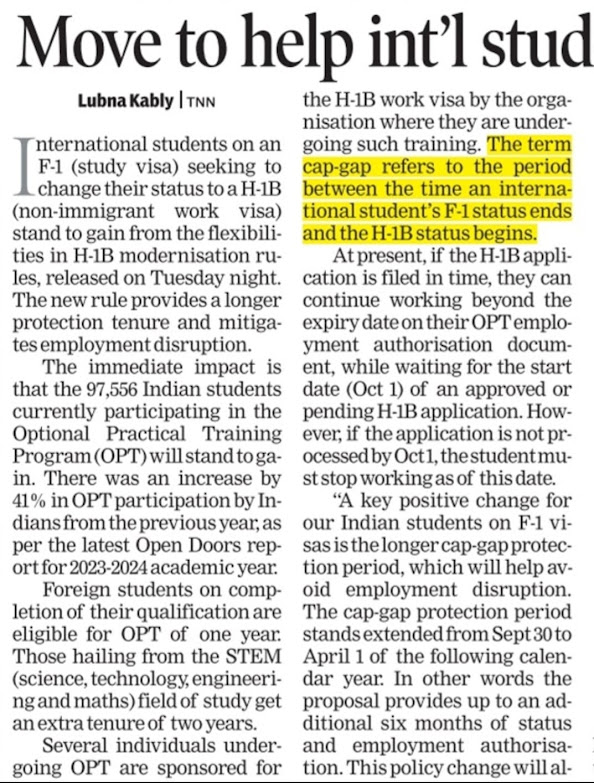19th December 2024
Today’s Times of India, Chennai Edition
Move to help int’l students navigate cap-gap
International students on an F-1 (study visa) seeking to change their status to a H-1B (non-immigrant work visa) stand to gain from the flexibilities in H-1B modernisation rules, released on Tuesday night.
The new rule provides a longer protection tenure and mitigates employment disruption.
The immediate impact is that the 97,556 Indian students currently participating in the Optional Practical Training Program (OPT) will stand to gain.
There was an increase by 41% in OPT participation by Indians from the previous year, as per the latest Open Doors report for 2023-2024 academic year.
Foreign students on completion of their qualification are eligible for OPT of one year. Those hailing from the STEM (science, technology, engineering and maths) field of study get an extra tenure of two years.
Several individuals undergoing OPT are sponsored for the H-1B work visa by the organisation where they are undergoing such training. The term cap-gap refers to the period between the time an international student’s F-1 status ends and the H-1B status begins.
At present, if the H-1B application is filed in time, they can continue working beyond the expiry date on their OPT employment authorisation document, while waiting for the start date (Oct 1) of an approved or pending H-1B application.
However, if the application is not processed by Oct 1, the student must stop working as of this date.
“A key positive change for our Indian students on F-1 visas is the longer cap-gap protection period, which will help avoid employment disruption. The cap-gap protection period stands extended from Sept 30 to April 1 of the following calendar year. In other words the proposal provides up to an additional six months of status and employment authorisation. This policy change will al low US employers to retain international student talent,” said Snehal Batra, managing attorney at NPZ Law Group.


No comments:
Post a Comment